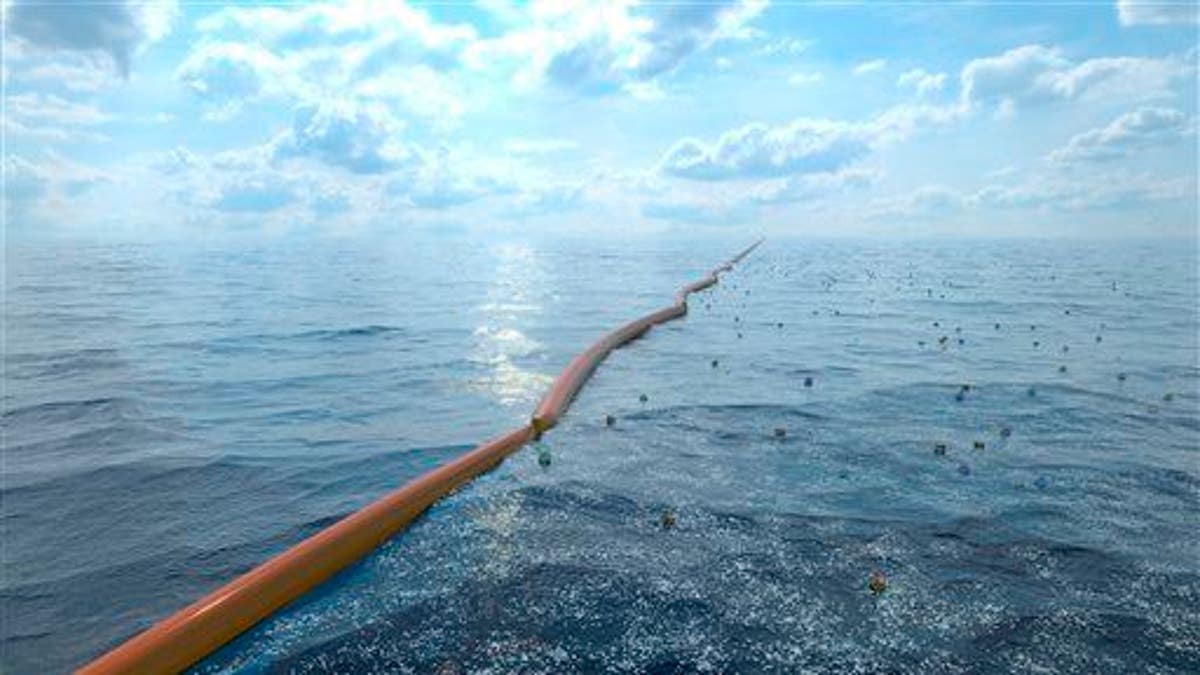
This computer-generated artists' illustration provided by The Ocean Cleanup shows how a floating barrier and collection station might appear in a project to collect plastic garbage from the world's oceans. (Erwin Zwart/The Ocean Cleanup via AP)
The amount of plastic in our oceans is now popping up as gigantic islands and set to outpace the global fish population by 2050. But it's also settling ever so slowly on the ocean floor in the form of plankton poop.
And because plastic-laden poop is lighter and falls more slowly than poop that is free of plastic, it has more time to be eaten up by other marine life in the process, report researchers from the University of Exeter in the journal Environmental Science & Technology.
"This could be an important route by which floating plastic litter is removed from the sea surface down to the ocean depths," says the lead researcher of the lab experiments.
"The magnitude of change observed here is concerning." The researchers observed zooplankton ingesting microscopic bits of plastic floating around and then pooping what is, essentially, plastic-filled feces.
Ordinarily such poop pellets help transport carbon and nutrients down to the ocean depths, but as researchers report in a press release, this plankton feces is not only not doing that, it's transporting plastic into the mouths of the marine life that ingest it as a food source.
It's unclear what this means, and whether the team's lab tests will play out in real life, but as Grist reports, "We’ve already got a serious problem on our hands, and these slow-moving, structurally unsound fecal dumbwaiters aren’t helping." (See how one young man wants to clean up the plastic in our waters.)
This article originally appeared on Newser: Plankton Poop Could Now Do Harm Instead of Good
More From Newser
